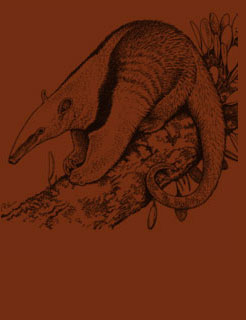A genetic heritage to be preserved
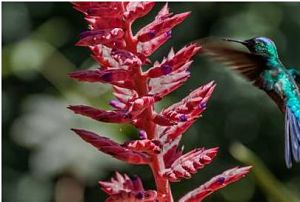 The Yacutinga Private Reserve is located at the south border of the Iguazu River, in the northeastern part of the Misiones Province in Argentina.
The Yacutinga Private Reserve is located at the south border of the Iguazu River, in the northeastern part of the Misiones Province in Argentina.
The main goals are conservation and protection of the flora and fauna characteristic to this type of forest. One of the pillars to achieve this mission is the investigation which is being carried out by Yacutingas’ Biological Station.
One of the most important goals at the Biological Station is the Inventory Project of native species to the Atlantic Forest. The Rosewood Aspidosperma polyneuron) and Palmetto (Euterpe edulis) environment, which the YPR protects, is located in a peculiar geographic location since there are two characteristics which make this formation possible: one, the high level of solar radiation in accordance to its position; the other, the humid air masses coming from the Atlantic Ocean which generates annual precipitations of 1700mm.
The existence of these factors allows the presence of a jungle in latitude where in other areas deserts or xerophilous forest can be found.
Continue reading →
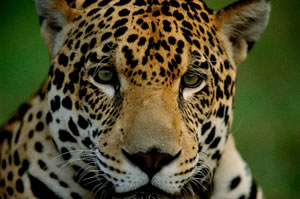 Following the tracks of the jaguar, the “king” of the Misiones Jungle which locals insist on calling the tiger, it’s not easy. According to studies by researchers from CONICET, the province of Misiones, only has about 50 adult specimens.
Following the tracks of the jaguar, the “king” of the Misiones Jungle which locals insist on calling the tiger, it’s not easy. According to studies by researchers from CONICET, the province of Misiones, only has about 50 adult specimens.
The conservation of the forest is a matter of life or death for the jaguars that due to its strong territorial character and large size, need large spots of unspoiled nature to feed and reproduce; fragmentation and deterioration suffered by the ecosystem it inhabits, is one of the main causes that puts this species on the verge of extinction.
As a result of the disappearance of large areas of unspoiled nature, the meeting of this elusive feline in the dense forest is increasingly bizarre, we can say that it is almost impossible today to find these animals and those who have; life has given them a priceless gift.
In Misiones they only find “refuge” in the Iguassu National Park and the Urugua-í Provincial Park in the north, to the valleys of Cuñá Pirú and Yabotí Biosphere Reserve in the center of the province. Thus, the few regions that conserve the forest in good condition become true natural sanctuaries.
Continue reading →
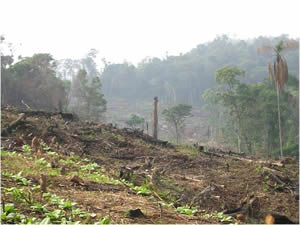 The clarity and forcefulness that provides regulations “Wildlife Conservation” and “Conservation and Sustainable Use of Biological Diversity” and its components may not be enough for a successful implementation in the Province of Misiones.
The clarity and forcefulness that provides regulations “Wildlife Conservation” and “Conservation and Sustainable Use of Biological Diversity” and its components may not be enough for a successful implementation in the Province of Misiones.
Happens that cases of illegal animal and plant predation are a constant in both public and private nature reserves is a situation that allows affirming that without any fear of incurring excess, we are facing an unfortunate scenario of permanent and unpunished attacks on biodiversity.
It is an unbroken predation, sometimes directed at wildlife like much of the native flora; manifested in numerous acts of looting nature throughout various natural shelters located within the provincial boundaries, marked by a failure of control and a lack of treatment integrated to the problem.
Continue reading →
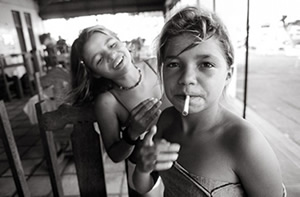 As we have mentioned, violence against children is part of a reality though it is a sometimes-silent scourge against humanity. In this context, if we talk about sexual abuse, sexual violence or sexual exploitation for commercial purposes, these are harmful criminal practices for the dignity and fundamental rights of children.
As we have mentioned, violence against children is part of a reality though it is a sometimes-silent scourge against humanity. In this context, if we talk about sexual abuse, sexual violence or sexual exploitation for commercial purposes, these are harmful criminal practices for the dignity and fundamental rights of children.
The First World Congress against Sexual Exploitation of Children (Stockholm, 1996) defined sexual exploiter as a person “who benefits unfairly from some imbalance of power between himself and a person under 18 years, with the intention of exploiting sexually that person, whether for profit or for personal pleasure. ”
Continue reading →
 Violence against children happens everywhere in the world and comes in many ways; sexual exploitation of children is one of them, and the most outrageous.
Violence against children happens everywhere in the world and comes in many ways; sexual exploitation of children is one of them, and the most outrageous.
In fulfilling our responsibilities and ethical commitment, we engage in the protection of fundamental human rights and fully condemn the sexual exploitation of children and adolescents in travel and tourism. Thus, we have adhered to the Code of Conduct for the Protection from Sexual Exploitation of Children and Adolescents in Travel and Tourism, to contribute concretely to the prevention of this crime.
Continue reading →
 The Yacutinga Private Reserve is located at the south border of the Iguazu River, in the northeastern part of the Misiones Province in Argentina.
The Yacutinga Private Reserve is located at the south border of the Iguazu River, in the northeastern part of the Misiones Province in Argentina.

 Following the tracks of the jaguar, the “king” of the Misiones Jungle which locals insist on calling the tiger, it’s not easy. According to studies by researchers from CONICET, the province of Misiones, only has about 50 adult specimens.
Following the tracks of the jaguar, the “king” of the Misiones Jungle which locals insist on calling the tiger, it’s not easy. According to studies by researchers from CONICET, the province of Misiones, only has about 50 adult specimens. The clarity and forcefulness that provides regulations “Wildlife Conservation” and “Conservation and Sustainable Use of Biological Diversity” and its components may not be enough for a successful implementation in the Province of Misiones.
The clarity and forcefulness that provides regulations “Wildlife Conservation” and “Conservation and Sustainable Use of Biological Diversity” and its components may not be enough for a successful implementation in the Province of Misiones. As we have mentioned, violence against children is part of a reality though it is a sometimes-silent scourge against humanity. In this context, if we talk about sexual abuse, sexual violence or sexual exploitation for commercial purposes, these are harmful criminal practices for the dignity and fundamental rights of children.
As we have mentioned, violence against children is part of a reality though it is a sometimes-silent scourge against humanity. In this context, if we talk about sexual abuse, sexual violence or sexual exploitation for commercial purposes, these are harmful criminal practices for the dignity and fundamental rights of children. Violence against children happens everywhere in the world and comes in many ways; sexual exploitation of children is one of them, and the most outrageous.
Violence against children happens everywhere in the world and comes in many ways; sexual exploitation of children is one of them, and the most outrageous.